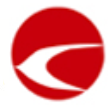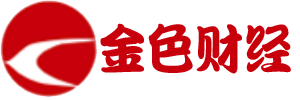Trump Eyes Higher Tariffs on Chip and Drugs as U.S. Mulls Extra Auto Levies
 摘要:
特朗普考虑对美国进口的汽车加征额外关税之际,同时计划对芯片和药品征收更高关税,此举旨在保护本国产业和应对贸易不平衡问题,此举可能引发全球贸易紧张局势,并导致价格上涨,对消费者和企业...
摘要:
特朗普考虑对美国进口的汽车加征额外关税之际,同时计划对芯片和药品征收更高关税,此举旨在保护本国产业和应对贸易不平衡问题,此举可能引发全球贸易紧张局势,并导致价格上涨,对消费者和企业... 特朗普考虑对美国进口的汽车加征额外关税之际,同时计划对芯片和药品征收更高关税,此举旨在保护本国产业和应对贸易不平衡问题,此举可能引发全球贸易紧张局势,并导致价格上涨,对消费者和企业造成一定影响。
TMTPOST -- The Trump admnistration on Tuesday issued threats of more sectoral tariffs.
AI Generated Image
U.S. President Donald Trump told reporters as he’s leaving for London on Tuesday that the U.S. government could implement semiconductor and pharmaceutical tariffs with the rates higher than levies on automobile. Trump played down concerns about auto tariff cuts under the trade agreements his administration clinched with trading partners including the European Union, Japan and South Korea.
"Well, I haven't compromised anything. Where did I compromise?" replied Trump when asked about possible hurts on U.S. carmakers due to Washington’s lowering the auto tariffs from 25% to 15%. He stressed he is the first one who imposed a 25% auto tariffs and exports to the U.S. could face higher new sectoral tariffs since players in semiconductor and pharmaceuticals have “bigger margin”.
“They paid no tariff for years. Now they are paying 15%, and some things could pay more tariffs,” said Trump, continuing “Semiconductors could pay more, and pharmaceuticals could pay more. Semiconductors and pharmaceuticals have higher margins (than automobiles).”
Trump touted significance of tariffs when the Supreme Court is going to rule whether most Trump’s global tariffs are illegal. "If we win the Supreme Court case, which is the finalization of tariffs, we will be by far the richest country anywhere in the world, and we will be able to help our people more and we'll be able to help other countries when we want to," he said.
Trump in May imposed 25% auto tariffs on on more than $460 billion worth of imports of vehicles and auto parts annually, while has since struck deals to reduce those tariffs on some countries.
The U.S. Commerce Department on Tuesday said it is mulling new auto tariffs in the next weeks in response to industry requests to protect national security.
The department said American producers of automobiles or automobile parts, or any industry association can ask for tariffs on additional parts to be imposed that have national security impact. The auto industry, which is experiencing rapid development for various technologies including autonomous driving, needs "the opportunity to identify new and emerging automotive products with importance for defense applications", according to the department.
A number of groups on Tuesday including the Chamber of Commerce as well as trade associations representing U.S. and foreign automakers and auto parts firms urged the Commerce Department "to eliminate further unpredictable expansions." "The recent expansion was implemented without adequate notice and creates significant unintended costs, complexity, and uncertainty for U.S. businesses," said these groups in a letter.
Trump last month repeated his pledge of semiconductor tariffs. On August 6, Trump said in the Oval Office that he will impose “a very large tariff” on semiconductors and the tariff rate would be around 100%. Later that month, Trump hinted the upcoming semiconductors levies could be as high as 300%.
Trump earlier this month warned he would soon impose tariffs on semiconductors again, while signaling new levies would not pose any negative impacts on companies building in the countries like Apple Inc.
Trump on September 4 said he will soon put a "fairly substantial tariff" on semiconductor exports to the United States. "We will be putting a tariff very shortly," Trump said at a White House dinner with tech industry executives. "Not that high, but fairly substantial tariff."
More than two dozens major tech leader joined in the dinner, including Apple CEO Tim Cook, Meta CEO Mark Zuckerberg and Oracle CEO Safra Catz. Trump singled Apple out as an example that would be spared the potential tariff costs. “Tim Cook would be in pretty good shape,” the president said.









